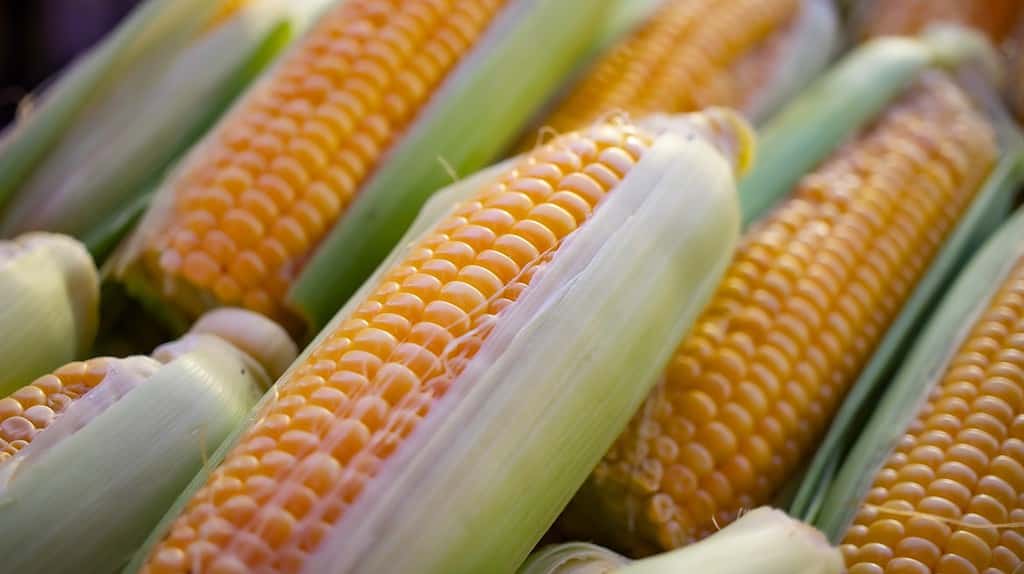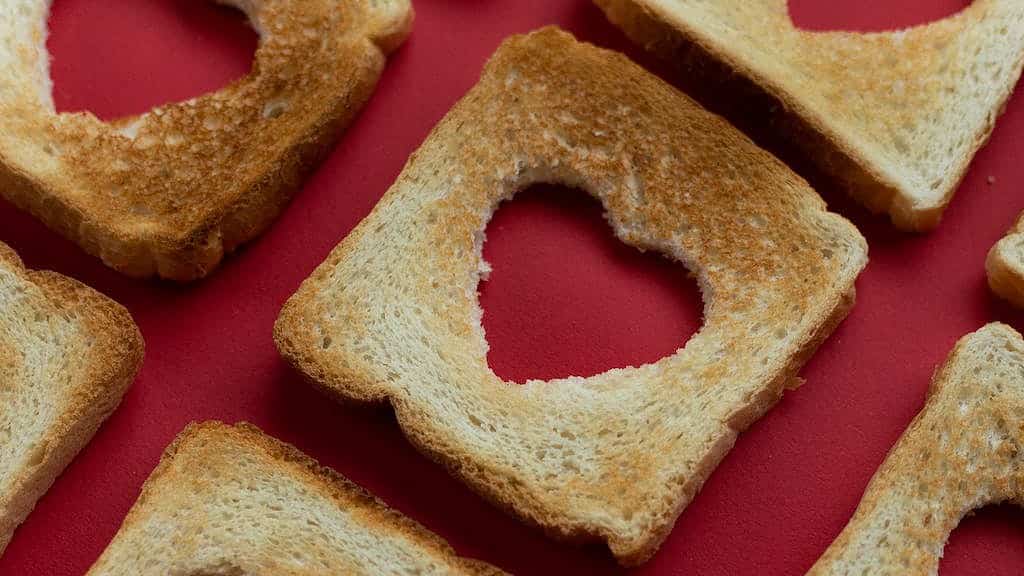Key Takeaways
- Dogs can eat cornmeal in moderation, but it should not be a staple in their diet.
- Cornmeal provides some nutritional benefits, including carbohydrates and dietary fiber.
- Feeding excessive amounts of cornmeal to dogs may cause digestive issues like stomach upset or diarrhea.
- Cornmeal should be cooked before feeding it to dogs to enhance digestibility.
- Ensure there are no added ingredients or seasonings in the cornmeal that could be harmful to dogs.
- Always consult with a veterinarian before introducing new foods to your dog’s diet.
- While cornmeal is generally safe for dogs, it should not be given to dogs with certain health conditions like allergies or pancreatitis.
- Pay attention to your dog’s reaction after consuming cornmeal and make any necessary adjustments to their diet.
- Overall, cornmeal can be a part of a balanced diet for dogs, but it should be given in moderation and cooked properly.
Summary
Can dogs eat cornmeal? The answer is yes, but there are some important considerations. While cornmeal itself is not toxic to dogs, it should be fed in moderation and cooked thoroughly to ensure easy digestion. This article dives deeper into the topic, providing valuable information about the benefits, potential risks, and recommended ways to include cornmeal in your furry friend’s diet. Whether you’re looking to introduce cornmeal or just want to make informed decisions about your dog’s nutrition, this article will provide the necessary insights to keep your pup healthy and happy.

Can Dogs Eat Cornmeal?
Cornmeal is a common ingredient used in several human dishes, including cornbread, tortillas, and porridge. Many pet owners might wonder whether it is safe to feed cornmeal to their furry friends. While cornmeal itself is not toxic to dogs, there are a few factors to consider before adding this ingredient to their diet.
Digestibility
Cornmeal is generally safe for dogs to consume as part of a balanced diet. However, it is essential to note that dogs have a different digestive system compared to humans. Dogs are primarily carnivores, and their bodies are designed to digest meat efficiently. While they can tolerate small amounts of carbohydrates, a diet high in cornmeal or other grains may not be optimal for their overall health.
Potential Allergies
It is not uncommon for dogs to develop allergies to certain food ingredients. Corn is a relatively common allergen among canines, and cornmeal is derived from corn. If your dog has shown signs of food allergies in the past, such as itching, gastrointestinal issues, or ear infections, it is advisable to consult your veterinarian before introducing cornmeal into their diet.
Additives and Preparation
When considering feeding cornmeal to your dog, it is crucial to analyze how it has been prepared. Some cornmeal products, such as commercial cornbread mixes or corn chips, may contain additional ingredients like salt, sugar, onion powder, or garlic powder, which can be harmful to dogs. These additives can cause various health issues, including digestive upset, anemia, or even damage to red blood cells. Always read the ingredient labels carefully and avoid anything that contains harmful additives.
Portion Control
If you have determined that cornmeal is safe for your dog, it is still important to feed it in moderation. Cornmeal is high in carbohydrates, which can lead to weight gain and other health problems if over-consumed. Additionally, cornmeal is not nutritionally dense compared to the protein-rich diet that dogs require. It should never replace a balanced meal that consists primarily of quality animal protein sources.
Alternative Options
If you are looking to incorporate grains into your dog’s diet, several healthier alternatives to cornmeal exist. Whole grains like brown rice, quinoa, or oats can be more nutritious options. These grains are easier for dogs to digest and offer more fiber and essential nutrients. Additionally, incorporating a variety of vegetables, fruits, and lean meats can provide a more balanced and nutritious diet for your furry companion.
Quick Recap
Cornmeal itself is not toxic to dogs, but it should be fed to them with caution. Some dogs may have allergies to corn or cornmeal, and certain additives found in commercial cornmeal products can be harmful. Portion control is vital, as cornmeal is high in carbohydrates and should not replace a protein-rich diet. There are healthier alternatives available if you wish to incorporate grains into your dog’s meals. As always, it is recommended to consult with your veterinarian before introducing any new foods to your canine companion’s diet.
Recipes and Alternatives to cornmeal for dogs
According to veterinarians, cornmeal is not recommended for dogs as it can be difficult for them to digest. Instead, there are several healthier alternatives that can be included in their diet. Some of the best options include brown rice, quinoa, sweet potatoes, and oatmeal. These foods provide necessary nutrients and are easier for dogs to digest.
- Brown rice: Boil brown rice until tender and serve as a side dish or mix it with lean meats for a balanced meal.
- Quinoa: Cook quinoa according to package instructions and serve it as a base for a nutritious dog bowl with vegetables and protein.
- Sweet potatoes: Steam or bake sweet potatoes until soft, then mash or dice them to provide a tasty and vitamin-rich addition to your dog’s diet.
- Oatmeal: Cook plain oatmeal and serve it as a warm meal for your dog, adding some fruits or vegetables for extra flavor and nutrition.
Frequently Asked Questions
Can dogs eat cornmeal?
Dogs can safely eat cornmeal in moderation, but there are some important things to consider.
Is cornmeal suitable for all dogs?
While cornmeal is generally safe for dogs, it may not be suitable for all of them. Some dogs may have allergies or sensitivities to corn or grains, which can cause digestive issues or other health problems. It is always advisable to consult with your veterinarian before introducing any new food to your dog’s diet.
What are the nutritional benefits of cornmeal for dogs?
Cornmeal is a good source of carbohydrates, which can provide energy for dogs. It also contains various essential nutrients such as iron, zinc, and B-vitamins. However, keep in mind that cornmeal is not a complete and balanced meal for dogs, so it should be used as part of a well-rounded diet.
How should cornmeal be prepared for dogs?
If you decide to feed cornmeal to your dog, it is crucial to prepare it properly. Dogs cannot digest raw cornmeal effectively, so it should always be cooked or mixed with other ingredients. Boiling or baking cornmeal until it reaches a fully cooked and easily digestible consistency is recommended. Avoid adding any additional seasonings or ingredients that could be harmful to dogs.
Can dogs eat cornbread made with cornmeal?
While cornbread made with cornmeal might seem like an enticing treat for your dog, it is essential to be cautious. Many cornbread recipes include ingredients like sugar, salt, butter, or other seasonings that can be harmful to dogs in large quantities. Additionally, some dogs may have difficulties digesting the dense texture of cornbread. If you want to offer your dog cornbread, make sure it is plain, without any additives or ingredients that may be harmful.
Are there any risks associated with dogs consuming cornmeal?
Feeding dogs excessive amounts of cornmeal can lead to various issues. Cornmeal is high in carbohydrates, so overfeeding may contribute to weight gain or obesity in dogs. Additionally, some dogs may experience digestive upset, such as diarrhea or an upset stomach, if they consume cornmeal in large quantities.
What should I do if my dog eats too much cornmeal?
If your dog accidentally consumes an excessive amount of cornmeal or displays any adverse reactions after eating it, you should contact your veterinarian for guidance. They can evaluate your dog’s specific situation and provide suitable advice or treatment if necessary.
Are there any healthier alternatives to cornmeal for dogs?
If you are concerned about the potential risks or if your dog has specific dietary restrictions, there are several alternatives to cornmeal that you can consider. Some options include sweet potato, pumpkin, quinoa, or various other grains. However, always consult with your veterinarian to ensure the chosen alternative is safe for your dog and suitable for their specific dietary needs.
Conclusion
After researching the topic, it can be concluded that dogs can eat cornmeal in moderation. Cornmeal is a safe and digestible food for dogs when cooked properly and given in small quantities. It can be used as an occasional addition to their diet or as a base ingredient in homemade dog treats. However, it is important to note that some dogs may have allergies or sensitivities to corn, so it is best to monitor their reaction when introducing cornmeal into their diet. Additionally, cornmeal should not be the main source of nutrition for dogs, as it lacks certain essential nutrients. As always, it is recommended to consult with a veterinarian before making any significant changes to your dog’s diet.
📚 Sources:












